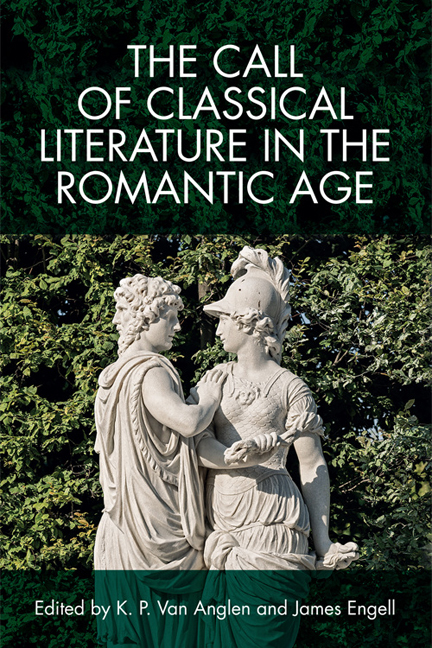9 - “In the face of the fire”: Melville’s Prometheus, Classical and Romantic Contexts
Published online by Cambridge University Press: 06 May 2021
Summary
As an example of how literary analogies create as well as define character, consider Melville's Captain Ahab. No dominant character has ever been more thoroughly fashioned from literary precedents. Ahab leads ‘mad’ black Pip by the hand with the tenderness of King Lear leading the Fool. Ahab exalts the possibilities of Man, but then undermines them, brooding upon his present inaction and planned destiny as if he were a New England Hamlet. Ahab withdraws into the defiant seclusion of his cabin like Manfred into his castle. Melville clearly intended the Parsee to serve as a Mephistopheles to Ahab's Faust. Ahab assaults God (or more often “the gods”) from the vantage point of jealous and injured pride until, like Milton's Satan, he casts his “last cindered apple to the soil.” During the more admirable moments of declaring his monomania, Ahab even resembles Tennyson's Ulysses, sailing forth “to follow knowledge like a sinking star, / Beyond the utmost bound of human thought.”
Among these multiplying analogues, the significance of Prometheus has been comparatively neglected. Although there are but two explicit references to Prometheus in Moby-Dick, their complexities deserve and reward detailed consideration. These complexities emerge from classical models of Promethean heroism, themselves contradictory. As studies of the changing characterization of Prometheus have shown, Prometheus has always served as a template for the age in which he is being reconsidered. In particular, the character of Ahab acquires resonance by being placed in the contexts of both Prometheus's classical origins and the so-called “Romantic Prometheus” first imagined by Goethe and then re-imagined by Byron, Mary Shelley, and Percy Shelley. Through his references to Prometheus, Melville is not simply adding in another tired literary allusion; he is transforming a vital classical reference in ways dependent upon, but different from, his near contemporaries in the Romantic era. The cumulative Promethean legend becomes a clarifying lens through which Ahab sees himself, and Melville sees Ahab.
Two Passages: Contrarieties
After hours spent futilely trying to chart the location of Moby Dick, Ahab falls asleep with clenched hands, then awakens “with his own bloody nails in his palms,” and rushes on deck as if “forks of flame” were issuing from the “hell in himself”:
For at such times, crazy Ahab, the scheming, unappeasedly steadfast hunter of the white whale; this Ahab that had gone to his hammock, was not the agent that so caused him to burst from it in horror again.
- Type
- Chapter
- Information
- The Call of Classical Literature in the Romantic Age , pp. 241 - 266Publisher: Edinburgh University PressPrint publication year: 2017



